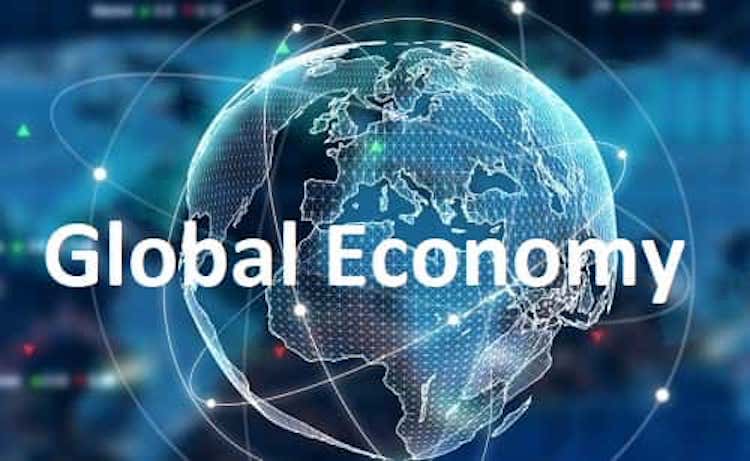
As we approach the midpoint of the third decade of the 21st century, the global economic landscape is poised for a profound shift, with Africa at its heart. Africa stands out as the continent with the most rapidly expanding and youthful population. It is inhabited by 1.5 billion individuals, with a significant proportion of those entering the labor force worldwide projected to reside on the continent by the 2030s, amounting to one in three individuals. As a result, the challenges and opportunities presented by the continent are monumental.
Africa’s growth trajectory is not only pivotal for the continent itself, but it also holds the key to unlocking sustained global economic prosperity. However, realizing Africa’s vast potential requires concerted efforts to overcome entrenched obstacles and harness the continent’s abundant resources, youthful population and strategic geographical position. That is why we should explore the multifaceted nature of Africa’s role in the future of the global economy and outline actionable solutions.
The first issue to consider is Africa’s demographic profile, which presents both a dividend and a challenge. With its youthful population, Africa has the potential to drive innovation, productivity and consumer demand on a global scale.
By 2050, Africa’s population is expected to nearly double to 2.5 billion, creating a massive consumer market for a wide range of goods and services. However, harnessing this demographic dividend requires investment in education, skills development and job creation to ensure that young Africans are equipped to participate meaningfully in the global economy. Moreover, addressing pressing issues such as youth unemployment, gender inequality and access to healthcare is essential.
This brings us to the importance of infrastructure development. One of the most pressing challenges hindering Africa’s integration into the global economy is its lack of adequate infrastructure. Despite being endowed with abundant natural resources, including key minerals crucial for emerging technologies, Africa’s economic potential remains largely untapped due to inadequate transport networks, energy grids and digital infrastructure.
There must be a concentrated effort to expand infrastructure investment across the continent. This entails not only addressing physical infrastructure gaps, but also investing in digital infrastructure to enhance connectivity, access to information and e-commerce capabilities.
In addition, by improving its transport networks, energy infrastructure and digital connectivity, Africa can attract foreign investment and integrate more effectively into global value chains.
Realizing Africa’s vast potential requires concerted efforts to overcome entrenched obstacles Secondly, investing in education and skills development is critical in order to boost Africa’s human capital and drive sustainable economic growth. In spite of the progress made in increasing access to education across the continent, quality and relevance remain significant challenges.
Moreover, there is a mismatch between the skills demanded by the labor market and those possessed by the workforce, exacerbating youth unemployment and underemployment. Addressing these challenges requires reforms in education curricula, vocational training programs and lifelong learning initiatives. Such reforms would equip Africa’s youth with the skills and knowledge needed to thrive in the modern economy.
One solution would be to promote science, technology, engineering and mathematics education, entrepreneurship and innovation, which are essential if Africa’s potential as a hub for technological advancement and digital innovation is to be fulfilled.
But these developments also require effective governance and policy reforms in order to create an enabling environment for business investment, entrepreneurship and economic growth. Simplifying regulatory processes, reducing bureaucratic red tape and enhancing transparency and accountability can foster a conducive business environment and attract both domestic and foreign investment.
More fundamentally, the promotion of good governance, the rule of law and anti-corruption measures is critical for building trust, reducing investment risks and ensuring sustainable development outcomes.
In addition, enhancing regional integration and trade facilitation efforts are critical due to the fact that they can create new market opportunities, increase employment rates, stimulate economic diversification and enhance Africa’s competitiveness on the global stage.
Sustainable development should be prioritized because it is paramount for Africa’s long-term prosperity and resilience. This includes embracing renewable energy sources, promoting sustainable agriculture practices and adopting eco friendly technologies that can mitigate environmental degradation, combat climate change and ensure the preservation of the continent’s natural capital for future generations.
Moreover, investing in climate resilience and adaptation measures is essential to safeguard Africa’s vulnerable populations from the adverse impacts of climate change. By leveraging its vast renewable energy potential and embracing sustainable development practices, Africa can emerge as a global leader in green growth, attracting investment and fostering inclusive and environmentally sustainable economic development.
In a nutshell, Africa’s ascent is not merely a regional phenomenon but a global imperative. As its population continues to soar and its economic potential expands, the urgent need for the international community to prioritize and invest in Africa’s development has never been greater. By addressing key challenges such as infrastructure deficits, education gaps, policy bottlenecks and environmental sustainability, we can pave the way for a new era of shared prosperity and sustainable development.
The time to act is now, for Africa’s success is not only essential for the continent itself, but also for the broader advancement of the global economy. The international community ought to seize this historic opportunity to unlock Africa’s potential and chart a course toward a brighter, more prosperous future for all.






